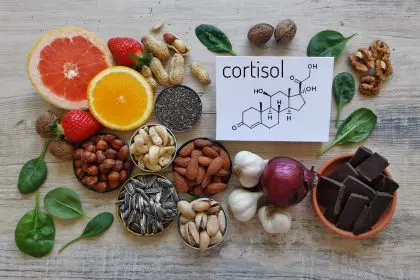The MIND diet is making waves as a revolutionary approach to nutrition, not just for weight loss but primarily for enhancing brain health and reducing the risk of Alzheimer’s disease. Unlike many trendy diets that promise rapid weight loss or detoxification, the MIND diet is grounded in scientific research and offers a sustainable lifestyle change.
Understanding the MIND diet
The MIND diet, short for the Mediterranean-DASH Intervention for Neurodegenerative Delay, combines elements from the Mediterranean diet and the DASH (Dietary Approaches to Stop Hypertension) diet. A significant study conducted by Rush University Medical Center revealed that adhering to the MIND diet can lower the risk of Alzheimer’s by an impressive 53%. This finding has led to the diet being recognized as one of the easiest to follow, according to U.S. News & World Report.
The science behind brain-healthy foods
The MIND diet emphasizes ten brain-healthy food groups that have been scientifically proven to support cognitive function:
Leafy greens contain vital nutrients that support brain health, including folate, vitamin E, flavonoids, and carotenoids. These compounds help protect brain cells from oxidative stress and inflammation.
Vegetables, particularly cruciferous ones like broccoli and cauliflower, are rich in compounds that may help slow cognitive decline. The antioxidants and nutrients in these vegetables support overall brain function.
Nuts provide healthy fats, particularly omega-3 fatty acids, which are essential for brain health. They also contain vitamin E, which has been linked to better cognitive performance.
Berries, especially blueberries and strawberries, contain flavonoids that improve memory and may delay brain aging. Research suggests that berries are one of the most powerful foods for protecting brain function.
The role of protein in the MIND diet
Fish, particularly fatty fish rich in omega-3s, plays a crucial role in brain health. The diet recommends consuming fish at least once weekly, with emphasis on varieties like salmon, mackerel, and sardines.
Poultry provides lean protein while being lower in saturated fats compared to red meat. The diet suggests including poultry at least twice per week.
Plant-based components
Beans and legumes offer a combination of protein, fiber, and nutrients that support both brain and heart health. The diet recommends incorporating them every other day.
Whole grains provide sustained energy and important nutrients that support brain function. They should be consumed multiple times daily.
Olive oil serves as the primary fat source, offering anti-inflammatory compounds that protect brain cells.
The moderate approach to wine
While the diet includes wine, moderation is key. One glass daily may offer cognitive benefits through its antioxidant content, particularly resveratrol.
Foods to limit or avoid
The MIND diet identifies several foods that should be limited:
Red meat consumption should be kept to fewer than four servings weekly, as high intake has been linked to increased inflammation and cognitive decline.
Sweets and pastries should be limited to fewer than five servings weekly, as excess sugar can impair brain function and contribute to inflammation.
Butter, margarine, cheese, and fried foods should be restricted to one serving weekly due to their high saturated fat content.
Implementing the MIND diet
Success on the MIND diet requires thoughtful planning and gradual implementation:
Daily essentials:
- Three or more servings of whole grains
- A leafy green salad
- At least one other vegetable
- A glass of wine (if desired)
Regular inclusions:
- Nuts as snacks most days
- Beans every other day
- Poultry and berries twice weekly
- Fish at least once weekly
Weight management benefits
While cognitive health is the primary focus, the MIND diet naturally supports healthy weight management through:
Portion control principles:
- Emphasizing nutrient-dense, low-calorie foods
- Promoting satiety through fiber and protein
- Limiting processed and high-calorie foods
Natural weight regulation:
- Reducing inflammation
- Supporting metabolic health
- Promoting steady blood sugar levels
Long-term success strategies
To maintain the MIND diet as a lifestyle:
Meal planning tips:
- Prepare vegetables in advance
- Keep frozen berries on hand
- Stock pantry with whole grains and beans
- Plan weekly fish and poultry meals
Shopping strategies:
- Focus on the produce section
- Choose frozen options when fresh isn’t available
- Read labels carefully
- Buy in bulk when appropriate
Addressing common challenges
Overcoming obstacles to adherence:
Budget considerations:
- Buy seasonal produce
- Use frozen fruits and vegetables
- Purchase beans and grains in bulk
- Choose less expensive fish options
Time management:
- Batch cook grain dishes
- Prep vegetables in advance
- Keep quick protein options available
- Plan meals weekly
The role of exercise
While the MIND diet focuses on nutrition, physical activity complements its benefits:
Exercise recommendations:
- Regular aerobic activity
- Strength training
- Balance exercises
- Mind-body practices
Monitoring progress
Tracking success beyond the scale:
Health markers:
- Energy levels
- Sleep quality
- Cognitive function
- Overall well-being
Looking ahead
The future of brain-healthy eating:
Ongoing research:
- New food combinations
- Timing of meals
- Individual responses
- Long-term outcomes
Conclusion
The MIND diet offers a sustainable approach to both brain health and weight management. Its foundation in research, combined with its flexible implementation, makes it a practical choice for those seeking to improve their cognitive function while maintaining a healthy weight. By focusing on nutrient-rich foods and allowing for moderate indulgences, the diet provides a blueprint for long-term health success.
Remember that individual needs vary, and consulting with health care professionals before making significant dietary changes is always recommended. The MIND diet’s principles can be adapted to various lifestyles and preferences, making it a versatile option for those committed to protecting their brain health while managing their weight effectively.














